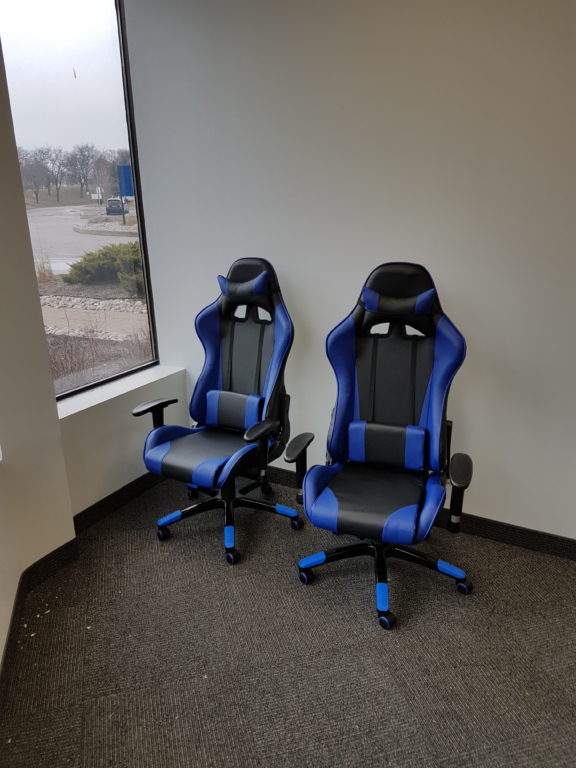
We know office furniture. We know it can improve productivity, raise morale, and even improve employee health. However, we also know that ergonomics for ‘out of the box’ products can only go so far.
These extras (that can be added as part of a furniture assembly service) can help make your office furniture even more comfortable and ergonomically sound.
While many office chairs have built-in lumbar support, there’s no such thing as a one-size-fits-all solution. Depending upon your body type, you may need extra cushioning on your lower back to improve posture and maintain the curvature of your spine.
You might not realize it, but how you rest your feet when you sit can cause leg discomfort and contribute to lower back pain and poor circulation. When adjusting your chair height, you need to align your arm rests with your desk height—however, this might leave your legs either bunched up if you’re tall, or dangling if you’re shorter.
A good rule of thumb is that your knees should rest at the same height as your hips, with your feet flat on a solid surface.
A footrest will stabilize your feet, providing that ‘solid surface’ at any angle, making your seating far more comfortable while helping to improve circulation and reduce lower back pain.
You might have seen them before: Keyboards that look like someone broke them in half over their knee, and then stuck back together crooked. What these keyboards do is separate the left- and right-hand keys, placing them on a much more natural angle, allowing your wrists to relax slightly outward instead of cramming them awkwardly into a little chest-width rectangle like a T-Rex.
The ideal height for a monitor varies based upon your height and the design of your workspace. While the stock monitor stand that comes with your workstation will suit some, many might find the monitor causing undue strain to the neck and shoulders.
Many adjustable monitor stands can lift, twist, tilt, and swivel, allowing you to find the perfect orientation for your monitor.
Working with paper documents, be they drafts, invoices, or transcripts, can be extremely taxing on the neck. Craning down to look at a piece of paper that’s next to your keyboard can cause tension, fatigue, neck pain, and even headaches.
The document holder, a trick that businessmen borrowed from musicians, will keep a reference document upright, preventing unnecessary straining and craning of the neck. These stands, if propped up next to the monitor, can keep the documents at eye-level and within your periphery, allowing you to easily and seamlessly glance at the document while you work.
Whether you’re sticking with the factory defaults or tacking on all the ergonomic bells and whistles, Choice will see that your office furniture is assembled properly, and in a timely manner. Call us today.